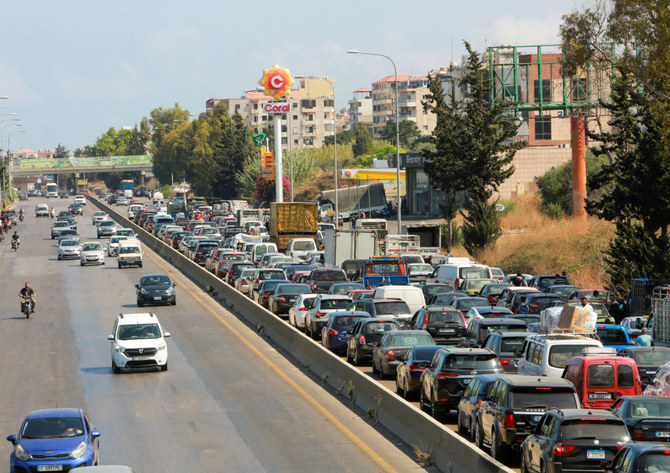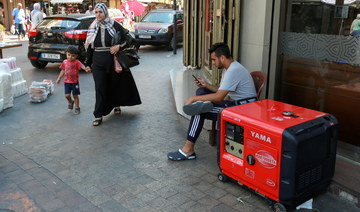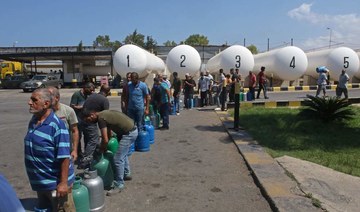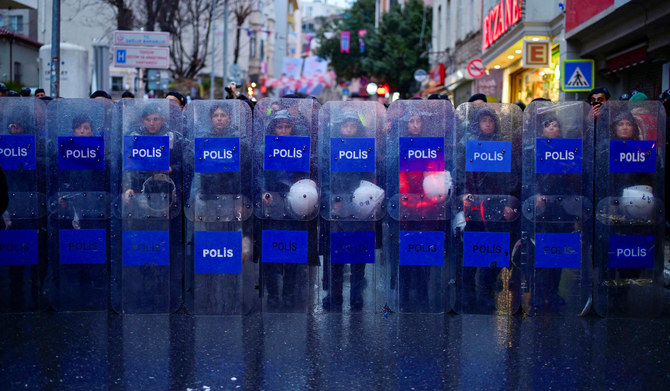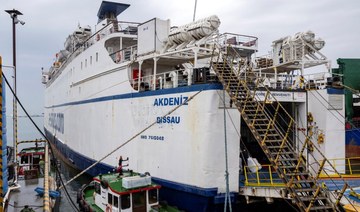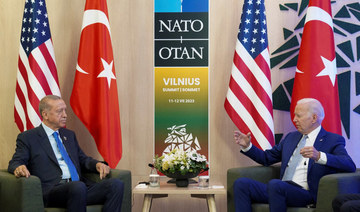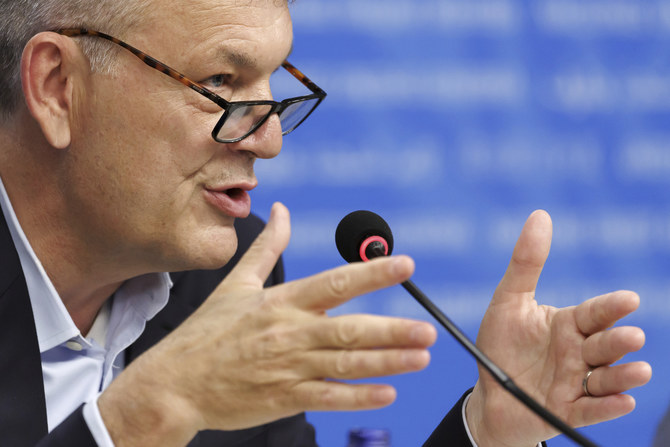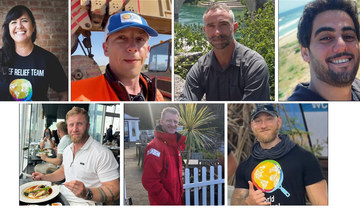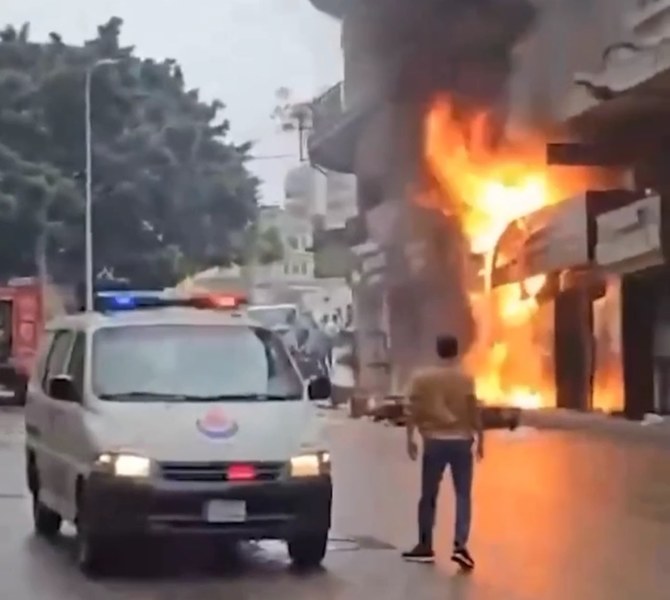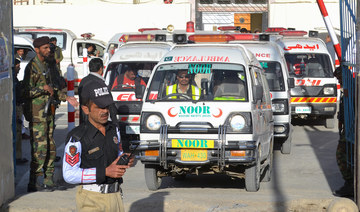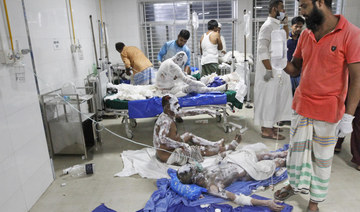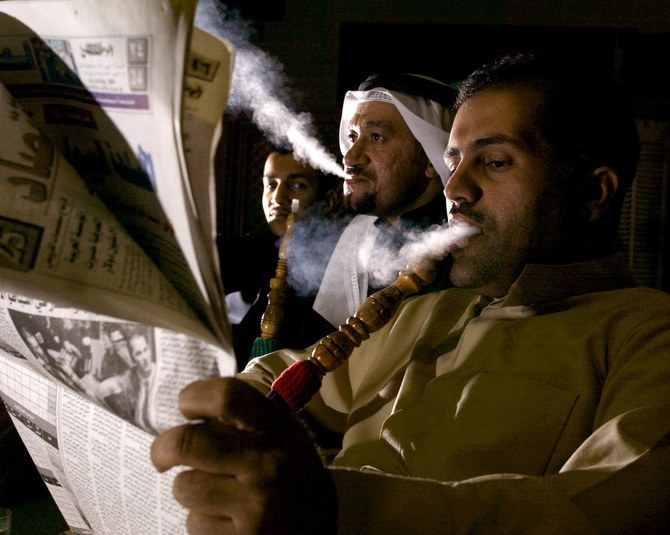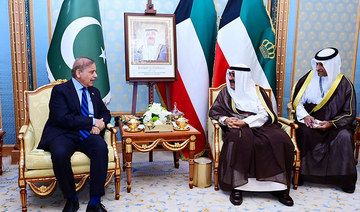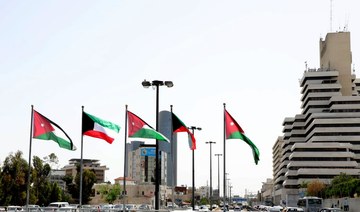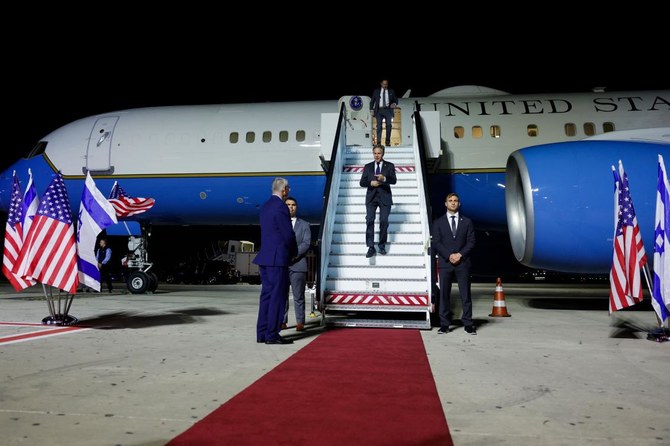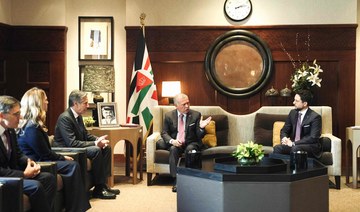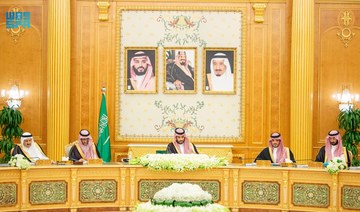BEIRUT: Many vital state facilities in Lebanon have warned of a full suspension of operations within 48 hours as a nationwide diesel fuel crisis has hit a catastrophic level.
There were long queues at gas stations, bakeries, and pharmacies across the country on Friday as people slept on the roofs of their buildings amid power cuts and the absence of diesel to run private generators.
One state facility that barely avoided a shutdown was the Beirut-Rafic Hariri International Airport, which benefited from a last-second injection of diesel to help keep the lights on.
“The petroleum importing companies were unable to deliver gasoline and diesel to the stations because they did not know how to price anything,” said Georges Fayyad, who heads the Association of Petroleum Importing Companies in Lebanon.
“The central bank told them that it will adopt the black market exchange rate (20,000 Lebanese pounds to the dollar) while the Ministry of Energy is still adopting the rate of 3,900 Lebanese pounds to the dollar.”
The recent fuel shortage is among one of the lowest points of a two-year financial crisis that has seen the Lebanese pound lose 90 percent of its value and driven more than half the population into poverty.
“The tug of war between the ruling authority and the central bank puts the people, the owners of the stations, and the entire fuel sector in a bind,” said George Brax, a member of the Gas Station Owners’ Syndicate.
“The citizens are suffering the consequences.”
The state-run telecommunications company Ogero announced that “due to the lack of fuel,” services have been suspended in the Akkar region in northern Lebanon.
Caretaker Minister of Communications Talal Hawat denied rumors about the ministry planning to permanently cut off Internet service in the country between 12 a.m. and 7 a.m. next month.
Youth groups in the south and north intercepted diesel tanks and confiscated the cargo while a fistfight over fuel at a gas station in Damour escalated into a shooting.
Nasser Srour, secretary of the syndicate of bakery owners in Beirut and Mount Lebanon, said he informed the economy minister that “dozens of bakeries have closed their doors” due to the fuel crisis.
Farid Zeinoun, head of the Union of Workers and Distributors in the Gas Sector, announced that the gas reserves “are sufficient for five days,” and called on the central bank “to allow the gas tanker that has been anchored at sea for 20 days to enter.”
The crisis has also sparked an exodus of citizens as long queues have emerged at Lebanese General Security centers across the country as 4,000 to 5,000 passport requests are being submitted every day.
“We get thousands of young Lebanese who are requesting passports to apply for immigration,” a security source said.
The Directorate of General Security described it as an “unprecedented” rush for passports.
The demand to expedite the formation of a new government was the focus of Friday’s meeting between President Michel Aoun and Maronite Patriarch Mar Bechara Boutros Al-Rahi.
The cleric demanded a government that “is made up of competent people who rise above all parties; this government needs to be ready to face difficulties and implement structural reforms in various sectors.”
On Thursday, Central Bank Gov. Riad Salameh said he will not dip into the mandatory reserve to subsidize fuel unless parliament legislates this matter. As a result, petroleum importing companies decided not to distribute fuel to stations until an agreement over the pricing is reached.
The bank’s decision puzzled the ruling authority, which had been trying to pressure Salameh to continue subsidizing fuel until ration cards for the needy were issued.
“The ration cards will be distributed to 500,000 families, and about $17 will be allocated for each family member,” a source close to caretaker Minister of Finance Ghazi Wazni told Arab News.
Lebanon will benefit from $300 million from the World Bank, according to the source, and it is expected to also benefit from $860 million in September coming from the International Monetary Fund to finance the ration cards. There is another World Bank program that can support 150,000 poor families.
“But it all depends on forming a government,” the source said. “We are expecting solutions by September, but not before.”




